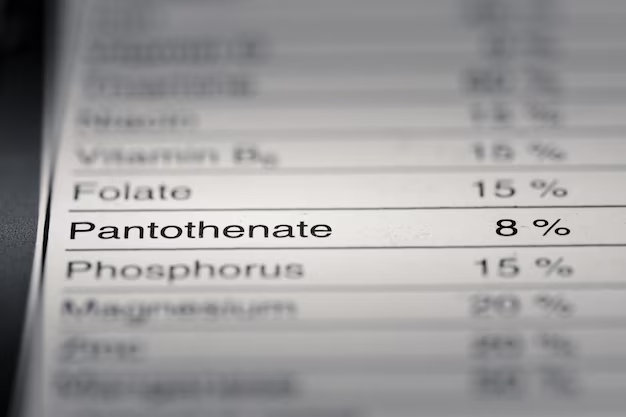Everything You Need to Know about NYC Sales Tax: A Comprehensive Guide
Navigating the complexities of sales tax can often feel like venturing through a maze, especially when it comes to New York City. Known for its bustling streets, renowned landmarks, and dynamic economic environment, NYC also presents a unique mix of taxes that can leave locals and visitors alike scratching their heads. In this guide, we will unravel the intricacies of NYC sales tax, offering a clear, detailed, and engaging explanation that empowers you with the knowledge needed to navigate your purchases confidently.
Understanding NYC Sales Tax
What Is Sales Tax?
At its core, sales tax is a consumption tax imposed by the government on the sale of goods and services. In the United States, sales tax can be levied at both state and local levels, which means that New York State sales tax might differ from that in other parts of the country.
NYC Sales Tax Breakdown
In NYC, the total sales tax rate is the sum of several components:
- New York State Sales Tax
- New York City Tax
- Metropolitan Commuter Transportation District (MCTD) Surcharge
Here’s a look at the current breakdown:
- State Sales Tax: 4%
- NYC Sales Tax: 4.5%
- MCTD Surcharge: 0.375%
Total NYC Sales Tax Rate: 8.875%
Application of Sales Tax
Sales tax in NYC is collected on the sale or rental of tangible personal property and certain services. However, there are notable exemptions, which we'll discuss further below.
Key Factors Influencing NYC Sales Tax
Exemptions and Exceptions
Not every purchase is subject to the total 8.875% sales tax. Here are some exemptions:
- Unprepared Food and Beverages: Essential groceries are usually exempt.
- Prescription and Certain Nonprescription Medicines: These are typically tax-exempt.
- Clothing and Footwear: Items costing less than $110 per item or pair are exempt from NYC sales tax.
Special Cases and Additional Taxes
- Hotel Room Occupancy Tax: Expect additional taxes on hotel stays, which can substantially increase the total tax burden beyond just regular sales tax.
- Luxury Items: Certain high-end goods may carry additional taxes or fees not included in the basic sales tax rate.
The Larger Context: Why Sales Tax Varies
Comparisons with Other Cities
NYC’s sales tax, while significant, is comparable with many other major urban areas. For reference:
- Chicago: Approximately 10.25%
- Los Angeles: Around 9.5%
- Houston: Roughly 8.25%
Each city has its own set of regulations and additional taxes, illustrating both the complexity and variation inherent in U.S. tax policy.
Economic Impact
Sales tax serves as a substantial revenue stream for both the NYC government and the state of New York. This tax helps fund public services, infrastructure projects, and more, forming a pivotal component of the city's economic health.
Practical Considerations for Consumers
Tips for Managing Sales Tax
Here are some tips for effectively managing your sales tax when making purchases in NYC:
- Budget for Sales Tax: Always factor in the 8.875% rate when planning significant purchases.
- Leverage Exemptions: Take advantage of sales tax holidays and exemptions on items like clothing under $110.
- Use Discounts: Apply applicable discount codes before calculating sales tax to save.
Quick Guide to NYC Sales Tax Savings 🗽:
- Shop for necessities like food and medicine, which are typically tax-exempt.
- Time major clothing purchases around items priced under $110.
- Consider the complete cost, including potential hotel or luxury taxes, when planning trips.
Navigating Sales Tax as a Visitor
If you’re visiting NYC, be mindful that the sales tax can add up quickly, especially on high-end shopping or lengthy hotel stays. Use online tools and calculators to estimate taxes before purchasing.
A Closer Look at Common Misunderstandings
Sales Tax vs. Use Tax
A common confusion lies in distinguishing between sales tax and use tax. While similar, use tax applies to goods purchased outside the state but used within, ensuring that out-of-state purchases do not escape taxation.
Online Purchases
With the rise of e-commerce, sales tax on online purchases has become a significant topic. In NYC, many online retailers collect sales tax at the point of sale, aligning with the state’s efforts to level the playing field between online and brick-and-mortar businesses.
The Future of NYC Sales Tax
As e-commerce continues to dominate and shopping habits evolve, NYC sales tax policies may undergo reforms or adjustments. Staying informed about legislative changes is crucial for consumers and businesses alike.
Empowering Yourself with Tax Knowledge
Sales tax is a fundamental part of NYC's economic landscape, influencing everything from daily shopping to large-scale investments. By understanding the components, exemptions, and practical applications of NYC sales tax, you can better manage your finances and navigate the bustling New York City marketplace with confidence.
Key Takeaways:
- NYC Sales Tax is 8.875%, comprising state, city, and MCTD components.
- Exemptions include food, medicine, and specific clothing items.
- Plan purchases and use sales tax calculators to manage spending effectively.
Whether you’re a lifetime New Yorker, a new resident, or a curious visitor, having a grasp of how NYC sales tax works provides economic benefits and a deeper appreciation of this vibrant city’s intricate fiscal environment. Armed with this guide, you're ready to tackle the Big Apple's financial landscape, one tax-savvy step at a time.

Related Topics
- Can I Deduct Vehicle Sales Tax On My Federal Return
- Do Gross Sales Include Sales Tax
- Do I Need To Collect Sales Tax For Selling Online
- Do You Pay Sales Tax At The Dealership Or Dmv
- Do You Pay Sales Tax On a House
- Do You Pay Sales Tax When You Buy a House
- Does Alaska Have a Sales Tax
- Does Arizona Have Sales Tax
- Does Canada Have Sales Tax
- Does Florida Have Sales Tax
